Whether you are just starting a business or growing a successful one, you’ve got enough to do to fill your days and likely your nights. We’ve all heard “work smarter not harder” yet too few Entrepreneurs figure out how. The “Key” is to have a disciplined focus on what really matters. Time spent now will save all kinds of time later because your destination will be clear, you’ll know exactly how to get there, and you will be far more productive and profitable. Guaranteed!
Let’s look at 3 Keys To Start-Up Success.
Key #1. “Visualize” Every Aspect Of The Business
Turn off the phone, close your office door, put the dog outside or go to a coffee shop (a quiet table). Then literally “see” yourself go through a typical day and experience every aspect of your business and learn from what you “see”.
Try this on the selling process. Don’t fast forward – play it out. Actually “hear” the conversation with a prospective customer, picture every part of your presentation, brochure or menu and how you use it, and “listen” to the reactions and objections they have and how you address them. Now replay it but with a better, clearer more impressive presentation. What did you learn about the interaction and your materials? Write it down. Your business just got stronger.
What exactly are you selling and what are the features and benefits? (People don’t buy things – they buy the benefits.) Are there additional or related products & services that you could / should sell? What are they, how do they fit in and how would you include them in the pitch or the display? If you don’t know, come up with answers. That’ll help strengthen your business even more.
Who are your customers? Where do you find them - exactly? If you don’t know, you better figure that out. Describe customers and their specific needs or desires. How do you know? If you don’t know – find out. How do you reach them and what exactly is in place to influence them to buy? Can you make it easier for them to buy? How exactly? What, precisely, do you do with every customer to ensure they buy from you again? Not sure? Come up with ideas. Your business just got stronger again.
Now picture how you deliver the service / product: How does it happen? By which mode of transport? How will it be packaged and with what information? What is the customer experience when they receive it, and how precisely do you follow-up with them after they bought to ensure satisfaction and deepen the relationship?
And that’s just the selling process!
Now watch yourself fill an order and see the details of “production”, how it goes, how it could be different or better or more efficient. What is the toughest part of filling the order? Why? What would make it better and what must you do, or buy or learn to accomplish that? What happens when the product breaks down, the report fails to satisfy or the muffins were stale? Knowing how to satisfy an unhappy customer can make them a customer for life.
You get the idea. Visualize the business. Visualize every part of it. Picture all your ideas about making it better and write them down. Do this every month. Then take action. Your business is getting stronger every day.
Key #2. “Test Launch” The Business
Your partner, or Mother or dog is asking you when you’ll be making more money. You’ve visualized (CSF #1), built the business plan and are ready to launch the business, open the store, produce a new colour brochure and do your first big mass mailing?
Fantastic - but don’t launch yet! Why you ask? Because you do not get a second chance to make a first impression. And your first impression will not be as good as your second and third one.
Despite your entrepreneurial spirit and the pressures you feel, test every part of the business before you set it in stone. Now in “testing” you can be making sales and filling orders or completing assignments. But consider them as “tests” in part so that you learn from the experiences, and in part to reduce the self-imposed pressure.
Every business is different so you must adapt these ideas to your situation. Are you producing a product, a food item or a service? Are you becoming a consultant, a travel agent or opening a daycare? Regardless, prepare a simple brochure or menu in low quantity with prices, product / service description, photos, etc. Find your first customers by getting referral from family, friends, business colleagues and so on. Or do a very small promotion and expose your business to the public on a very small scale.
Unlike visualizing, now you are “experiencing” the real business. How do people respond, if at all to your test promotion? If the response is poor, go back to them ask them why? That’s’ right – people love to give you advice, especially if you are not selling them anything. Really dig deep with them and understand what happened - listen more than you speak. Did they understand what you were offering? Did they need it or want it? Do they buy it elsewhere and if so learn all about whom, how much and what they like and dislike about them. Were your prices too high? Would they consider buying in the future? What is a better way to have reached them? Imagine the power of this “market research”. Imagine how much money you just saved and how much better your next promotion will be? Imagine how few potential customers you just lost with the wrong message? Wow! You just made your business much more successful.
What if some people did respond and wanted to buy but you never closed the sale. What if folks came to taste your food and didn’t come back to use your “25% off if used in the next 30 days coupon”. You need, again, to find out why they were interested in the promotion, or store sign or free presentation but didn’t become a customer. Dig really deep this time, because they may feel badly, embarrassed or obligated. Worse, they may not want to give you the time of day. Reassure them, get past that and you’ll be amazed. Did they not trust that you could deliver on the promise? Why? Were you too expensive, or too cheap? So what can you do about that? You know the drill from there.
And if they bought from you – congratulations! Fantastic. How did it go actually completing the paint job, catering the party, finishing the marketing plan or serving them dinner in the restaurant? Did it take longer than expected? Cost more than planned? Not the quality you or the customer wanted? Did they ask you reduce the price in the end and if so why? There are countless scenarios and each one of them may be extremely valuable in improving your business.
Key #3 Critical Success Factors (CSF’s)
Knowing the factors critical to your success (CSF’s) means knowing how to run your business far more efficiently profitably and by only doing (or prioritizing) those things that make the biggest difference to your customers and your bottom-line.
So, I’ll try to make this CSF description shorter - because a CSF in writing good articles is to make the point clearly and succinctly!
The CSF’s for every business are different. CSF’s for a bakery might be food quality, location, in-store experience, running seasonal promotions, allowing shoppers to watch the bakers baking, always having samples out… A Consulting Engineer’s CSF’s may be his/ her credentials, showing past experience, a technical and elaborate website, very detailed proposals, professional-looking reports, networking at the right associations...
Of all the items you sell to your customers and all the things you include in the sale to them, which really matter to them, which make them the happiest and which do they value (be willing to pay more for) the most? Which products, services or parts of them make you the most profit (not revenue)? If you know the answers to these questions, the CSF’s relating to your product line-up will become obvious.
Don’t be fooled if these CSF’s seem obvious. They only come from experience, always watching what works and what does not, and from good “Test Launch” efforts (CSF #6). We might be surprised how many bakeries spend a lot of money on their website without knowing if it is a CSF or not. If it is not, they would enjoy a much higher ROI on opening up a wall or putting more samples out front of the store. Or the Consulting Engineers that are too busy to keep their website up-to-date and rich in content even though that is where most of their business originates? And how would they know that? You know the answers now!
NOTE.
Our new Smart Small Business Webinar Series of 7 webinars is a practical “Crash Course” in small business success. The 3 Keys To Success written about in this article are based on the first of 8 Keys we present in START101, the first webinar in the series.



